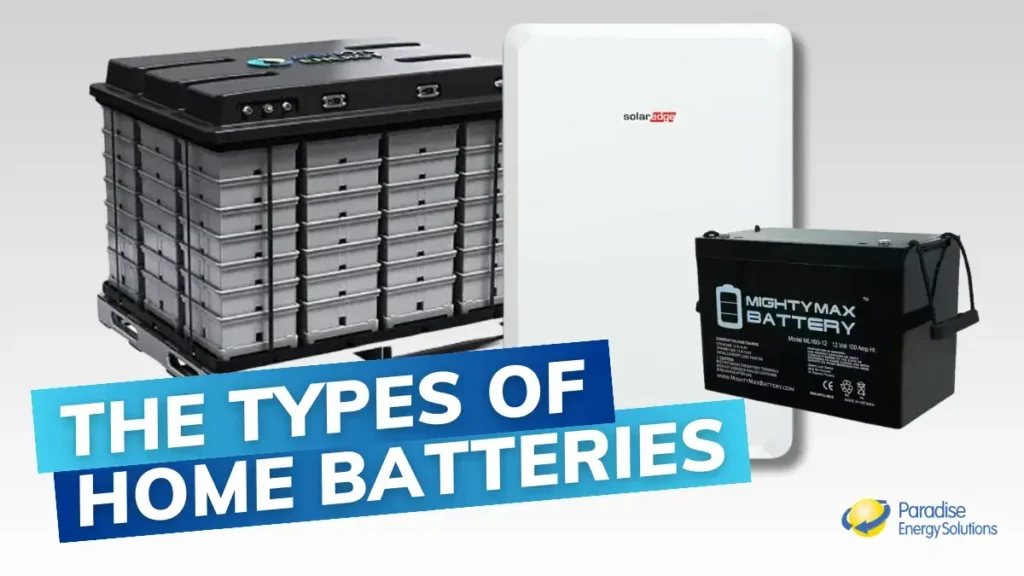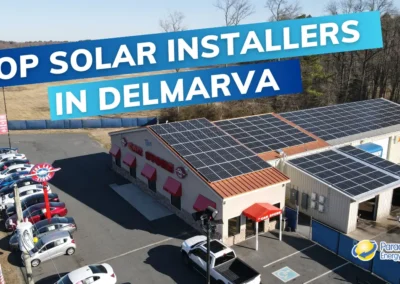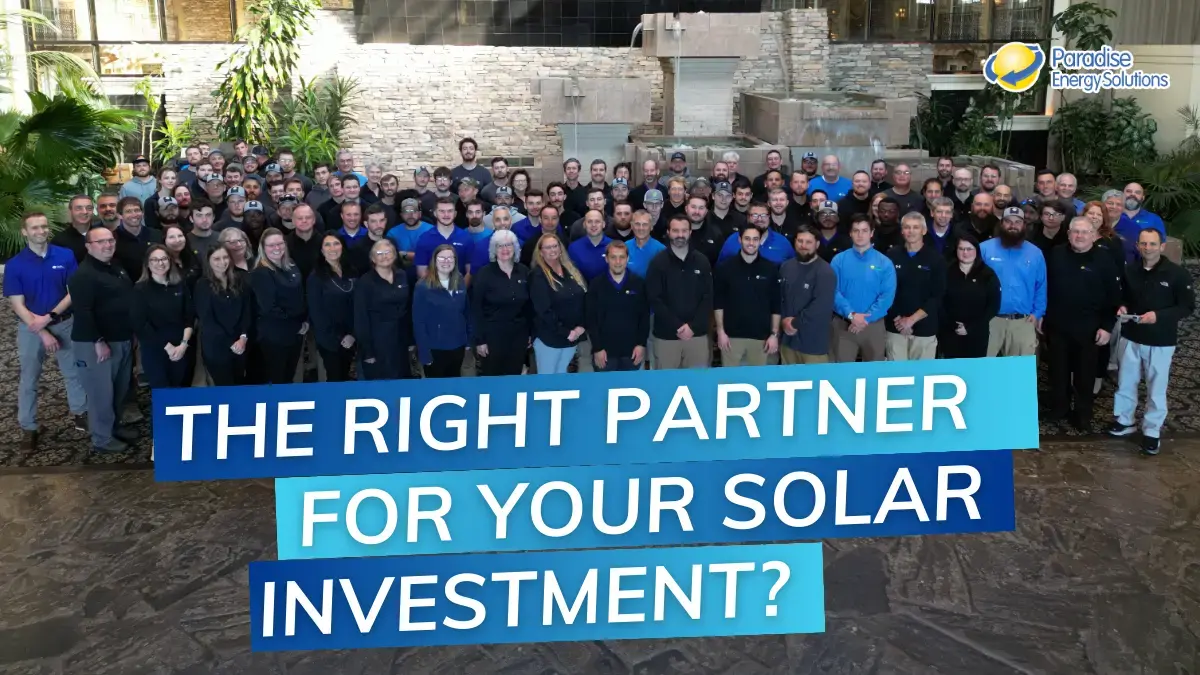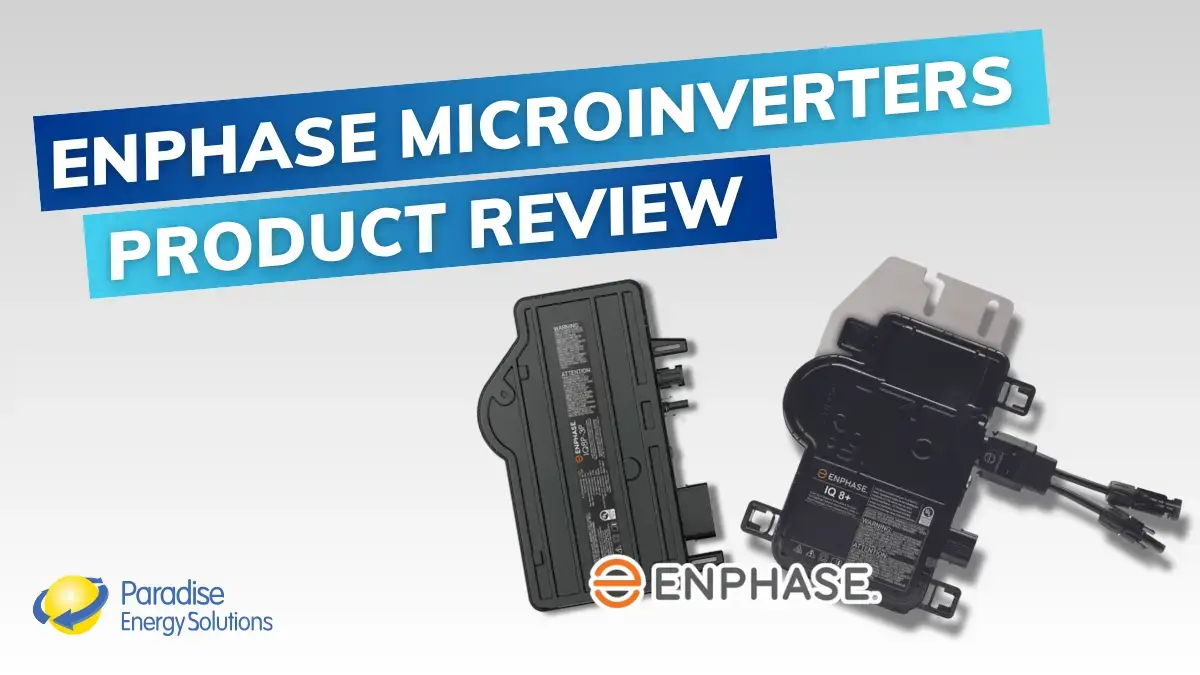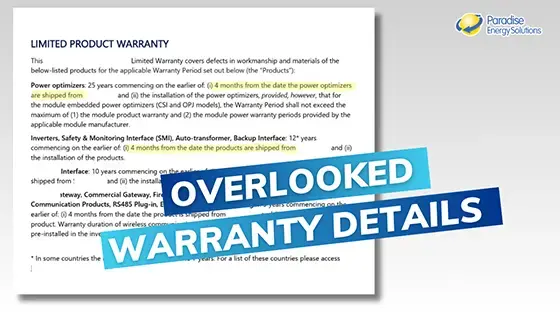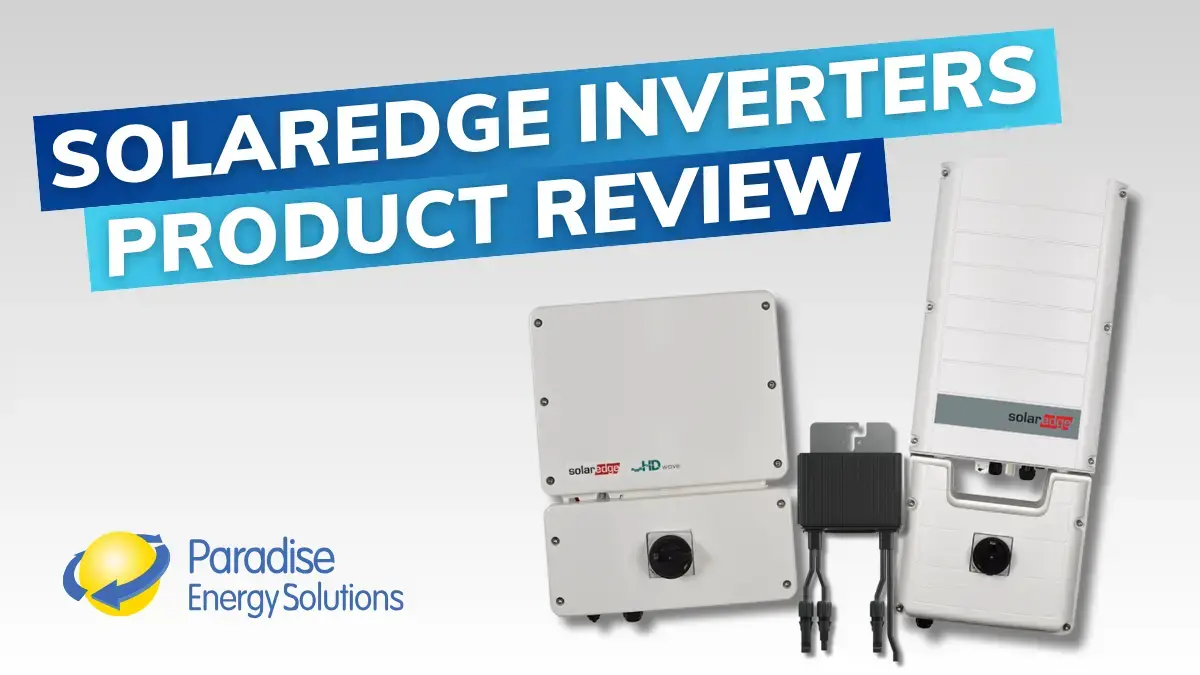When it comes to harnessing solar energy, choosing the right solar power batteries is crucial. Whether you’re looking for a way to keep the lights on when the grid goes down or you want to help offset demand charges, continued advances in the solar storage industry are making batteries cheaper and more efficient.
While still an expensive option for home energy backup, batteries run on a free energy source and are more environmentally friendly compared to a gasoline generator.
If you’re wondering what batteries are best for solar storage, there’s no one-size-fits-all answer. It’s important to keep in mind your specific goals and budget.
In this blog, we’ll go over the common battery types:
We’ll share the advantages and disadvantages of each solar storage solution to help you determine what the best type of battery is for your solar system.
Solar Battery Basics
Before we dive into what battery is best for your solar system, we want to go over a few common battery-related terms.
Capacity
Capacity is how much electricity your solar battery can store. Just like your energy loads, capacity is measured in kilowatt-hours (kWh). The greater the solar battery’s capacity, the more energy it holds.
Power
Power, on the other hand, is the amount of energy the battery can provide at a single moment and is measured in kilowatts (kW). These two factors go hand-in-hand when it comes to storing your solar panels’ energy and keeping your loads running.
A battery with a high capacity stores a lot of energy, whereas a high-power battery can power equipment that uses a lot of electricity.
Depth of Discharge (DoD)
Depth of Discharge, or DoD, is the percentage of the battery’s charge you use. For example, say you have a solar battery with a capacity of 13.5 kWh. You use 10 kWh of its charge, which is about 74%. The depth of discharge is 74%.
Solar battery manufacturers have a recommended maximum DoD for most batteries, meaning they don’t recommend you use 100% of your battery’s power. Doing so could shorten your battery’s life significantly. The DoD of batteries varies, but in most cases, batteries with a higher DoD mean you can use a greater percentage of the battery’s power.
Battery Life
If you’ve ever owned the same laptop or smartphone for a few years, you’ve likely noticed the battery doesn’t last as long in year two as it did fresh out of the box. This is because the battery’s ability to hold a charge decreases with each charging and discharging cycle.
Most batteries have warranties that will guarantee a battery for a certain number of cycles or a specified time period. And just as with other solar system equipment like panels and inverters, picking a well-established manufacturer with a long history makes it more likely they’ll be around to honor those warranties.
